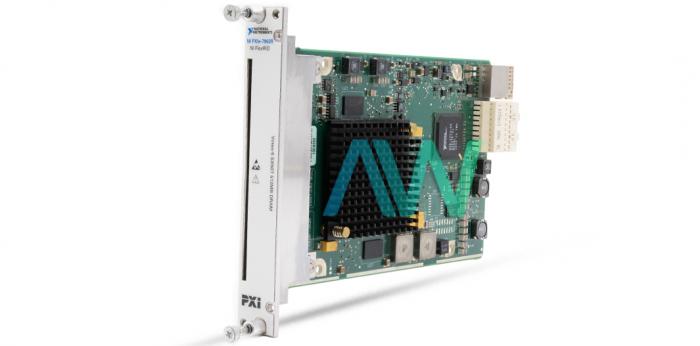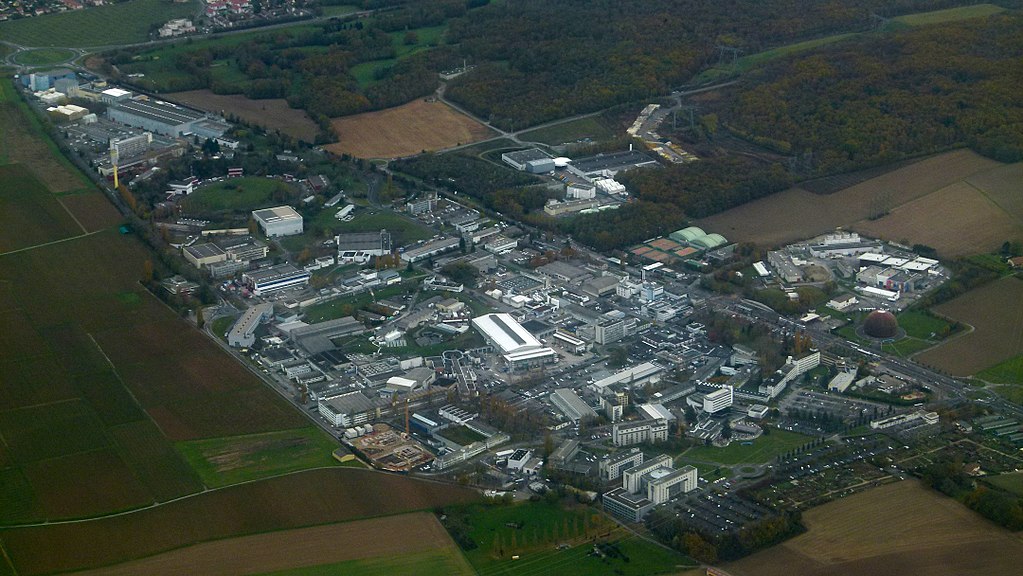Particle physics experiments push the boundaries of our understanding of the fundamental building blocks of the universe. To conduct these experiments effectively, researchers need cutting-edge technology that can handle vast amounts of data generated by particle detectors.
This post will take a look at a case where the Experimental Particle Physics Department at the Jožef Stefan Institute (JSI) in Ljubljana, Slovenia, tackled the challenge of developing a beam telescope for evaluating pixel sensors used in high-energy particle physics experiments. Their innovative solution involved using NI PXI Express hardware, NI FlexRIO hardware, and NI LabVIEW software.
To conduct these experiments effectively, the researchers needed cutting-edge technology that could handle vast amounts of data generated by particle detectors. The JSI team opted for NI PXI Express hardware due to its modularity, advanced interconnectivity, and reliability.

Key PXIe and FlexRIO Hardware
NI PXIe-7962R NI FlexRIO Module: This module features an onboard FPGA and 512 MB dynamic random access memory (DRAM) and forms the backbone of their data acquisition and signal processing system. It offers high-speed data acquisition capabilities and is crucial for their pixel sensor evaluation setup.
NI-6585 32-Bit I/O Module: This module works in conjunction with the NI PXIe-7962R NI FlexRIO module, providing 32-bit bandwidth at a frequency of up to 200 MHz, contributing to the high-performance data acquisition capabilities of their system.
NI PXIe-1082 Chassis: This chassis includes a PCI Express bus, ensuring a fast and reliable connection between the FPGA module and the NI PXIe-8133 controller, which is essential for efficient data transfer.
NI LabVIEW Software: The flexibility and user-friendly nature of NI LabVIEW software played a pivotal role in the success of the JSI team’s project. LabVIEW allowed them to seamlessly integrate and program individual modules, despite having limited prior LabVIEW coding experience. It enabled them to develop their system quickly, freeing up time for analysis algorithm refinement.
The Challenge: Pixel Sensor Evaluation
Particle physics experiments demand precision and reliability. Before pixel detectors can be used in experiments, they must undergo rigorous evaluation. This evaluation involves measuring the efficiency and resolution of these detectors, typically done using specialized reference systems called beam telescopes. These telescopes are essential for understanding how well detectors perform in high-energy particle beams, such as those generated by accelerators like CERN in Switzerland.
The JSI team faced a significant challenge. They needed to evaluate a large number of individual pixel sensors, and existing beam telescopes were insufficient for their needs. This situation necessitated the development of a new beam telescope that could detect and reconstruct tracks of high-energy charged particles, providing valuable insights into detector efficiency and resolution.
Optimized Data Flow
Efficient data flow is crucial in high-energy physics experiments. The JSI team optimized data flow using NI FlexRIO features, including a single-cycle Timed Loop in the FPGA code and FIFO buffers in both FPGA and PC memory. They also implemented algorithms for overflow protection to prevent data corruption during data transfer.

Impressive Results
Tests at CERN validated the effectiveness of their approach. The NI PXI Express system proved stable, with no data losses during FPGA-to-PC data transfer. The acquired event rate was limited only by the dead time of the Mimosa-26 sensors, indicating that the data acquisition system was not the bottleneck. This promising outcome suggests that even higher rates could be achieved with additional FPGA firmware development.
The JSI team successfully reconstructed and analyzed the acquired data, confirming that data corruption was effectively prevented by their overflow protection algorithms.
In conclusion, this case study from the world of particle physics highlights how advanced hardware and software solutions from National Instruments can revolutionize data acquisition and analysis in high-energy experiments. By choosing NI PXI Express hardware, NI FlexRIO hardware, and NI LabVIEW software, the JSI team created a powerful, reliable, and flexible data acquisition system that not only met their current needs but also paved the way for future advancements in particle physics research.
The case study discussed in this post was originally co-authored by Matevz Cerv from the European Organization for Nuclear Research and Andrej Gorisek from the Jožef Stefan Institute.







